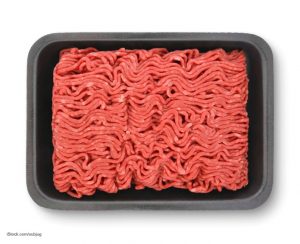The Office of Inspector General of the USDA recently reviewed FSIS testing of boxed beef that is processed into ground beef or mechanically-tenderized steaks to see if the processes are adequate and used effectively to determine the sources of E. coli contamination. They found that FSIS needs to re-evaluate its methodology, since all boxed beef product is not adequately tested. Downstream processors grind boxed beef without sampling it for E. coli. In addition, grocery stores, butcher shops grind their own beef but FSIS does not sample and test trim at these facilities. E. coli 0157:H7, along with six STEC bacteria (Shiga toxin producing E. coli) are considered adulterants in raw beef.
 The report details twelve recommendations in response to five findings, including planning to modify PHIS, developing a plan to implement a testing program for beef that is ground in retail establishments, and performing a risk assessment on tenderized product. FSIS agreed with all of the recommendations.
The report details twelve recommendations in response to five findings, including planning to modify PHIS, developing a plan to implement a testing program for beef that is ground in retail establishments, and performing a risk assessment on tenderized product. FSIS agreed with all of the recommendations.
FSIS has several E. coli sampling programs for components of ground beef, but the OIG found that inspectors don’t sample enough beef, and that the facilities inspected do not have adequate records for traceback in case of an outbreak. Large slaughter houses package intact cuts, such as sirloins or chuck steak, into large boxes. The processing facilities that receive these boxes assume these cuts will stay intact, but downstream processors may grind that meat or mechanically tenderize it, which will introduce pathogenic bacteria into the center of the product. The products have the USDA mark of inspection, so the downstream processors assume that the beef is not contaminated.
The OIG found that 80% of the plants they visited did not test boxed beef that was processed into ground beef. None of the facilities that mechanically-tenderized the beef used product that FSIS tested for E. coli.
In addition, the government’s new Public Health Information System (PHIS) had significant problems with data migration and profile errors. The report states, “FSIS inspectors did not receive any notification from the system directing them to pull any E. coli samples for about 50 million pounds of ground beef that was produced over about five months.”
Congresswoman Rosa DeLauro (D-CT) released a statement about the audit saying, “this report identifies numerous shortcomings that directly affect the public. It reinforces the clear need to label mechanically tenderized beef products rather than continue to place the health of consumers at risk. I find it staggering that the OIG identified a nearly 82 percent inaccuracy rate for the establishments in the Public Health Information System that they sampled.”




